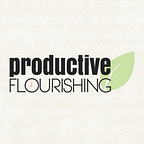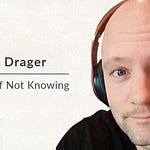Sebastian Marshall joins Charlie on the podcast today to talk about productivity from a different perspective. Sebastian is the co-founder of Ultraworking, a company building technology to help people hit flow states and peak performance more often in their work. He and Charlie talk about peak performance, and how the path to peak performance often requires focus on areas outside your work.
Key Takeaways:
[1:45] - Sebastian and his co-founder worked together on various nonprofit and education ventures before starting their company. They were both interested in how different companies and people doing the same work performed differently, and how they could measure quality and reliable work. Today, in their business, they focus on three main things: 1) reliable effectiveness 2) frequent flow states and 3) rapid recovery.
[6:25] - Having a flexible productivity system helps these three points, especially the rapid recovery. This allows you to continue with productivity, even if something happens that gets you off track. We want to be able to operate even when our context doesn’t match the system we’ve built to do reliable work.
[8:40] - People don’t often think about or model statistical base rates out in the world. We don’t typically plan time for things to go wrong. Sebastian shares some research that indicates we should give 80% of our capacity each day. This gives us a reserve that we can use if something comes up and still allows us to get our work done, and also provides some built in slack that we can use if needed.
[14:00] - The 80% mark requires that everyone be really good at what they do. This may not be the maximum optimization for new companies; it may be a goal to work towards.
[15:30] - Sebastian recommends following up big tasks with an enjoyable project, rather than stacking big projects back to back to back. This helps you use the time you have more effectively, and often people move more quickly through their big projects with the luxury end goal on the horizon. It’s also important to plan time for transitions between projects, so you can unwind and evaluate a project before moving on to the next one. You can also use this transition time to clean, archive, and trash.
[22:00] - Taking time to cleanse after a project sets you up for the next project, and also allows you to re-recruit your body and catch up to the process and project you’ve just finished. The recovery process for our minds is similar to our recovery processes for our bodies, and should be treated as such.
[26:10] - A lot of the cognitive work that we do is actually done in places outside of our brain. The body is part of a greater matrix of effectiveness and energy that it takes to do our best work. We need times that we’re not at 100% to hit the highest level of output.
[27:20] - There are a lot of connections between biochemistry and productivity that can explain how things happening to us outside of our work can affect us while we’re in our work. For an example, this is especially true for caffeine. Making biochemistry changes seem harder in the moment, but if you accept that it doesn’t have to be harder, it can actually make things a lot better.
[32:20] - There is a distinction between the meta skill of behavior change, and the particular behavior change you want to implement. For example, when people try to clean up their diet, they often start by trying to cut out what they enjoy most. Instead, Sebastian started slowly eliminating the lowest things on his list that he used to eat. This built up the meta skill of quitting and separated it from actually quitting individual behaviors. You can gradually set up the systems and skills for quitting behaviors, and then use them to tackle the harder things.
[37:05] - Everyone has an activity they like to do that’s a waste based upon their preferences and priorities. Eliminating them with the slow-quit method will help you with control and free you up to focus on other things.
[40:05] - We can be hardcoreabout one thing at a time. If you want to be super hardcore, you have to be paying a lot of attention to the changes. If you’re regularly having conflict, you probably aren’t going to be able to effectively develop a habit. The same is true for our productivity systems. You can have one or two habits that you’re hardcore about, but everything else needs to be free.
[43:55] - To help behavior changes, you can make the cost of not doing something higher than the cost of doing it, or the reverse. When you’re first trying something new, you have to be clear about whether the discomfort you’re feeling is the discomfort of change, or whether it’s discomfort of being out of values or principles.
[46:20] - Sebastian combats this discomfort by doing some fairly intense monthly planning. He focuses on one theme or one core idea each month, and can anticipate pressure in this area. The time period of a month is usually a good indication about whether it’s something worth continuing or whether you need to tweak something to make it more effective.
[51:50] - If you surround yourself with other people who are committed to getting a lot out of life, they can help hold you accountable for the goals you set for yourself. Other top performers who see you as a top performer will help you get there and stay there, or help you grow in your practices.
[55:25] - If you’re looking for other people like this, you may have to get out and put yourself in situations where these people interact. Sebastian gives some tips for people who are looking to surround themselves with other top performers. You can ask for advice, and then follow up after you’ve given it a try. You will build up a reputation as someone who asks smart questions and tries out suggestions. People look out for people who are doing stuff.
[1:00:25] - Sebastian’s invitation/ challenge for listeners is to go set a monthly theme for next month. Give it a name, almost like a mantra. Build some supporting policies around your theme, and run hard on it. If you do it, let Sebastian know how it went!
Mentioned in This Episode:












